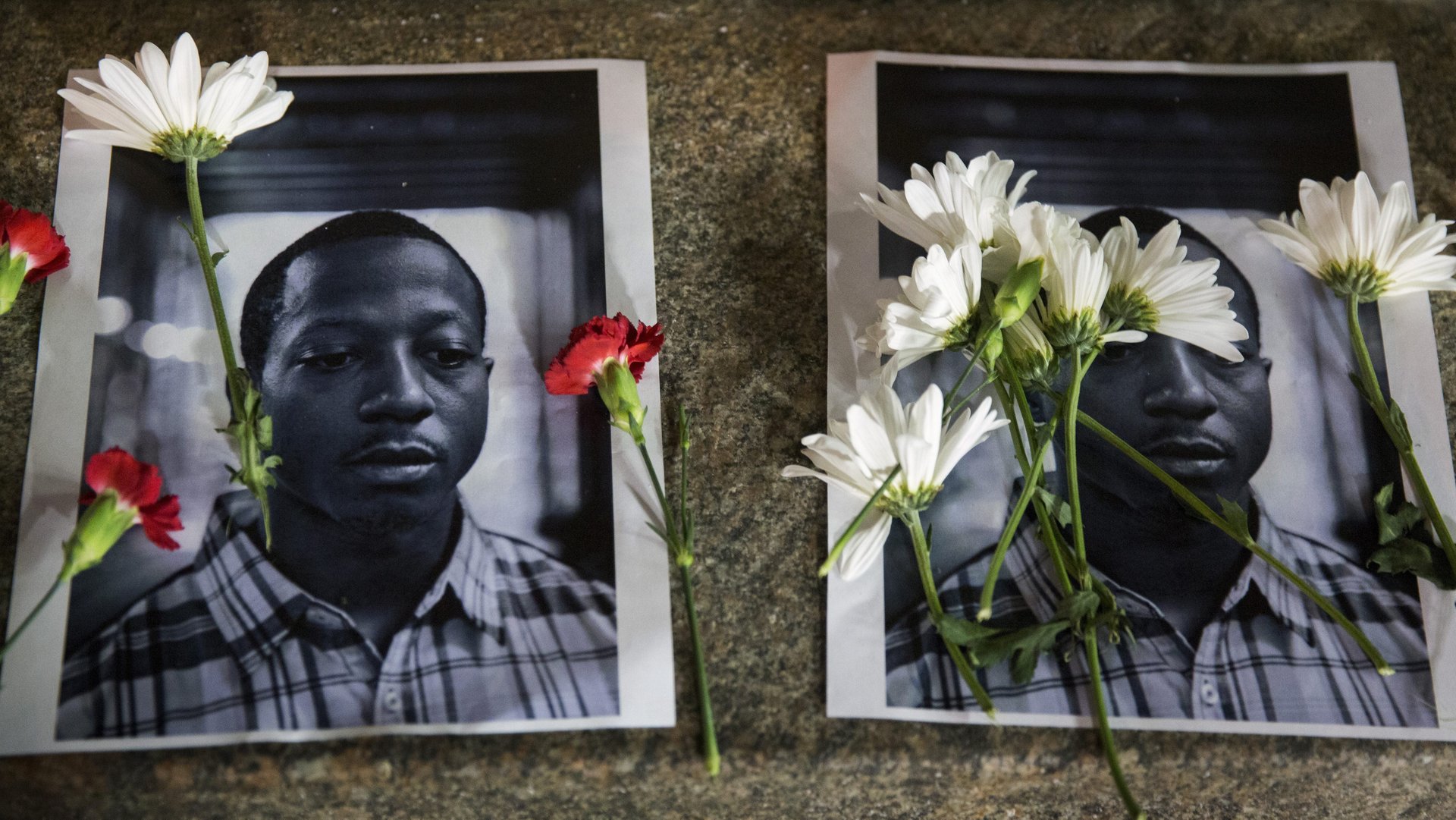His name will always be synonymous with the horror of America’s juvenile-justice system
On the day Kalief Browder would’ve turned 24, a street corner in New York City’s Bronx was renamed in his honor, highlighting the multiple injustices that led to his suicide in 2015.


On the day Kalief Browder would’ve turned 24, a street corner in New York City’s Bronx was renamed in his honor, highlighting the multiple injustices that led to his suicide in 2015.
Browder’s story made him the face of the way America treats its juvenile offenders, and sparked several important changes in the criminal-justice system—changes that came too late for him, and many others.
Kalief Browder’s tragic journey
Actually, Browder was not convicted of any crime. In 2010, when he was 16, he was accused of stealing a backpack, something he maintained he didn’t do. His family couldn’t afford the $3,000 bail, and he refused to take a plea deal. He ended up spending three years awaiting trial in New York’s notorious Rikers Island jail, a facility generally meant for adults. Two of those years he spent in solitary confinement. The trial never happened and the case was dismissed.
Browder’s case gained notice when Jennifer Gonnerman profiled him for The New Yorker in 2014. Shortly before the piece was published, a US Justice Department report detailed the brutal treatment of adolescents in the jail, and recommended that 16- and 17-year-olds be moved off of Rikers.
As surveillance footage obtained by Gonnerman proved, Browder himself was assaulted by a guard and attacked by other inmates. While at Rikers, he told Gonnerman he attempted suicide several times. After he was eventually released, he bounced around between different mental-health institutions and attending classes at a community college. He attempted suicide again. Finally, the trauma appeared to be too much, and in 2015, he hanged himself from his family apartment’s window.
The broader American picture
Browder’s story became an illustration of a number of problems plaguing the American criminal-justice system: needlessly treating adolescents as adults, inhumane jails, an exploitative bail system that feeds off the poor (and, usually the non-white), the use of solitary confinement, extraordinarily long pre-trial detention, and the effects of incarceration on mental health (as well as the problem’s treatment).
In 2014, an estimated 4,500 juveniles were held in adult jails, according to the US Bureau of Justice Statistics. Many more are held in various detention centers, as well as in adult prisons. They are at the highest risk for sexual abuse out of any other incarcerated population, the National Prison Rape Elimination Commission found. And solitary confinement is proven to have dramatic effects on anyone, but it is particularly devastating for young people.
Youths in adult jails are 36 times more likely to commit suicide than their peers in juvenile detention facilities, according to the Campaign for Youth Justice.
What has changed since Browder’s time on Rikers
The Bronx youth’s story not only shed light on an abusive, inefficient system, it is credited with sparking real change. When Barack Obama announced he was ending solitary confinement for juveniles in federal prisons in 2016, he cited Browder’s case extensively.
New York City introduced a number of reforms as well, including measures to curb violence at Rikers, reduce the backlog of cases in the city’s courts, and end solitary for most detainees under 21. “A lot of the changes we are making at Rikers Island right now are the result of the example of Kalief Browder,” mayor Bill de Blasio said in 2016. A plan was also developed to move 16- and 17-year-olds off the island.
In April, New York’s governor Andrew Cuomo signed a law to stop the practice of charging 16- and 17-year-olds as adults in criminal court, with Browder’s brother by his side during the ceremony.
In March, de Blasio announced the city would close Rikers Island, finally heeding advocates’ longstanding calls to do so. The process will take a decade. As a part of the plan, New York’s public advocate Letitia James proposed to rename it after Kalief Browder.